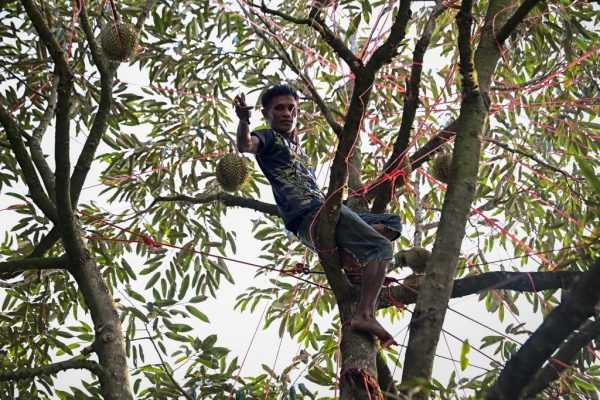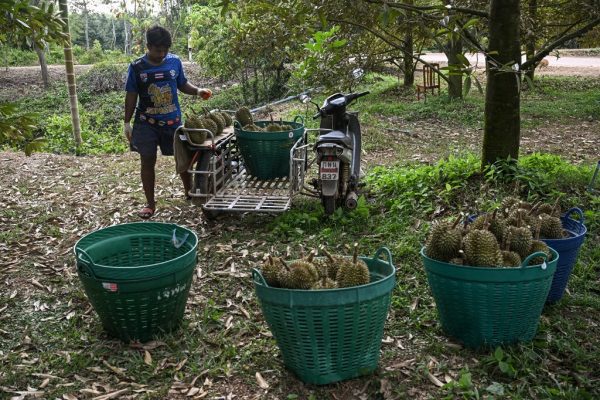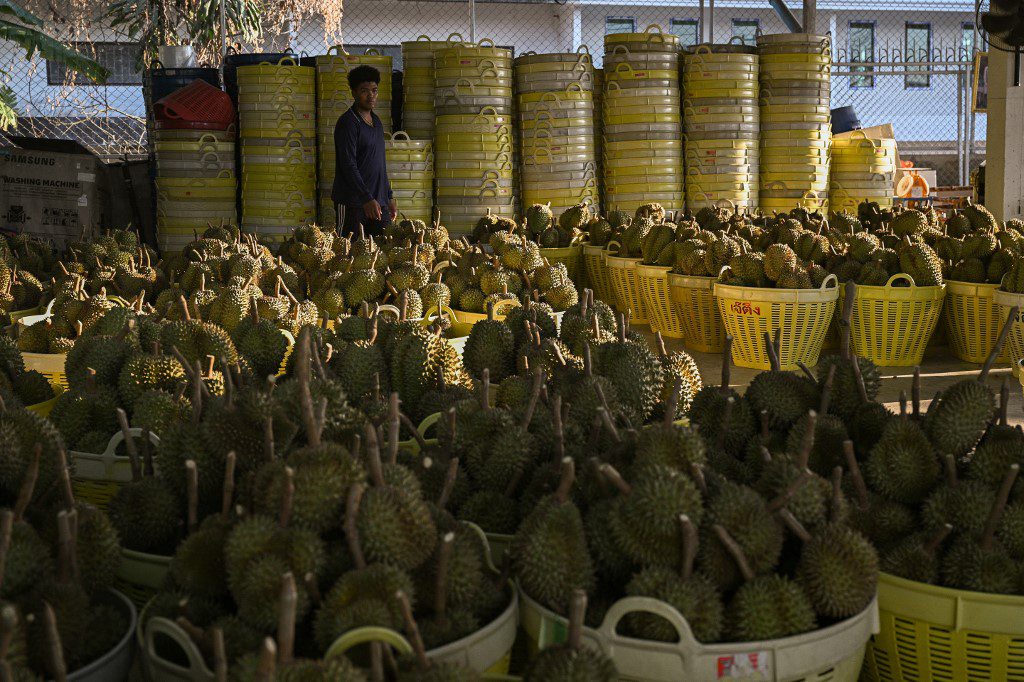A durian worker climbs and carefully cuts a large fruit from a tree before dropping it down to a colleague below.
The strong-smelling “king of fruits” is a famous and lucrative export of Thailand, known for its distinct smell and spiky green-brown shell, and has been farmed in the country for centuries.
A severe heatwave in Southeast Asia has led to smaller yields and rising costs, causing concern among growers and sellers as global warming damages the industry.


Durian farmer Busaba Nakpipat straightforwardly told AFP that this year is a crisis.
The weathered 54-year-old took over her parents’ farm in eastern Chanthaburi province, the main area for durian farming in Thailand, thirty years ago.
Busaba stated that if the hot weather continues to increase in the future, it will be the end, and farmers won’t be able to grow durian anymore.
The durian season typically runs from March to June, but the high temperatures and subsequent drought have shortened the harvest in her province, where temperatures have been around 40 degrees Celsius (104 degrees Fahrenheit) for weeks.
Busaba said the heat causes the durian to ripen faster and not reach its full and most valuable size, as it is graded by weight and size.
She mentioned that the durian's quality won’t meet the standard.
She is getting less money for the crop, and her operational costs have also risen.
Since March, a drought has depleted the wells, forcing Busaba to bring in thousands of liters of water by truck to keep her durian trees alive.
To water her entire 10-rai (1.6 hectares) farm, she has to buy 10 water trucks with 120,000 liters of water each time, repeating the process every other day, which costs thousands of dollars.
She expressed that they have prayed for rain, but it hasn't come.
– This year, less –
Thailand’s durian exports are worth billions and are the kingdom’s third most valuable agricultural product, after rice and rubber.
However, anxiety is high among stall-holders at the nearby durian market, many of whom have family businesses that span generations.
Siriwan Roopkaew, tending to her mother’s stall, mentioned that the lack of water has affected the fruit size, but for now prices remain high due to demand from China.
China imports about 95 percent of Thailand's durian, totaling nearly $4.6 billion in 2023, according to data from Beijing’s commerce ministry.
But the weather is endangering Thailand’s dominance in the market.
In May, Chinese state media reported a nearly 50 percent increase in durian imports from Vietnam, attributing it to the heat and drought in Thailand.
"The hot weather means there will be a smaller amount of durian. Even this year, there is less durian," Siriwan, 26, said.
"Normally, my stall would be filled with durian by now."
While farmers were worried about water, she said, sellers like her family were more concerned about the resulting economics.
"A reduced amount of durian means our earnings are lower," she said, "so it would be difficult for us to sustain ourselves for the whole year."
Meanwhile, back at the farm, Busaba sighed as she considered the months ahead.
"The fate of durian is doomed if there's no water," she said.
Agence France-Presse









